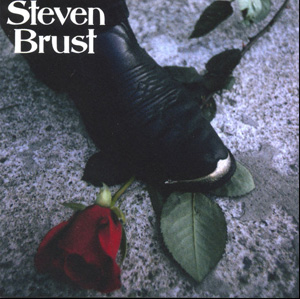 I’ve read almost all of Steven Brust’s books, listened (innumerable times) to the song cycle he wrote with Adam Stemple, Songs from ‘The Gypsy’, and heard some samples of the music of Cats Laughing. All of this did absolutely nothing to prepare me for A Rose for Iconoclastes.
I’ve read almost all of Steven Brust’s books, listened (innumerable times) to the song cycle he wrote with Adam Stemple, Songs from ‘The Gypsy’, and heard some samples of the music of Cats Laughing. All of this did absolutely nothing to prepare me for A Rose for Iconoclastes.
A word first about the title of this album — it’s a take off on the title of Roger Zelazny’s great early story, “A Rose for Ecclesiastes.” I wouldn’t advise, however, that you spent any significant amount of time on a close examination of the songs in order to draw a direct link between Zelazny’s story and the content of this collection. As nearly as I can determine, there isn’t one. But then, that’s Steven Brust for you.
The songs as a group fall into the 1960s folk/protest genre. Brust, as a matter of fact, calls it “politically incorrect folk music.” “I Was Born About Ten Million Songs Ago,” for example, could very easily have been a comedy turn by — well, Peter, Paul and Mary, who are actually mentioned in the song, along with about ten million other personalities who can even remotely be connected with popular music.
There’s politics of a sort here, too. “Backward Melody” is a pointed jab at those who claim that popular music is the Devil’s work, particularly those visionaries who hear messages from Satan embedded in the lyrics — you just have to play them backwards.
“She’s Gone” offers a foray into a honky-tonk kind of blues, while “Stream of Consciousness Blues” veers off into a country-flavored near patter song. “Drift” is a charming ballad, full of warmth and what I can only call contentment, and points up the strength of Brust’s more serious song writing. If Brust’s voice were a little throatier, a little more expressive, it would be the highlight of the collection.
And now that I’ve said all that, I beg you to remember that these labels are only approximations. There are a host of traditions and influences evident in these songs, everything from traditional fiddling to blues to early rock — much as many traditions worked their way into the folk movement of the ’60s. The lyrics are sometimes pointed, sometimes pungent, often topical, most often ironic and nearly tongue-in-cheek — or actually, very much so. Where it misses, I think, is that the feeling is ultimately light — much of the album was intended to be humorous — but there’s none of the anger that informed the best music of the ’60s, or anything that came after — “Latex Man,” for example, refers to the AIDS epidemic (remember, this came out in ’93, when even presidents could finally say the word), but the song and the delivery are almost light-hearted. My chief reservation is that the collection lacks a real edge.
As with most solo efforts, this one benefits from the help of a few friends, notably Adam Stemple (who also produced it), Sara Diedrich, Gary Schulte, Dakota Dave Hull, and other Minneapolis-area musicians, mostly members of Flash Girls, Boiled in Lead, and Cats Laughing.
(Beer & Pizza, Inc., 1993)
